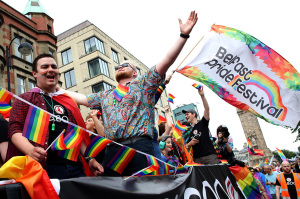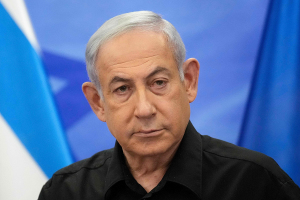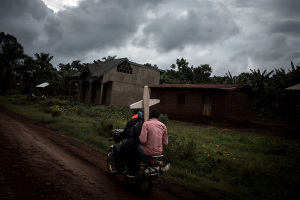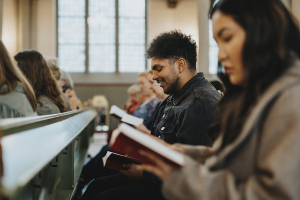State Dept. hosts largest religious freedom summit in world history; survivors testify
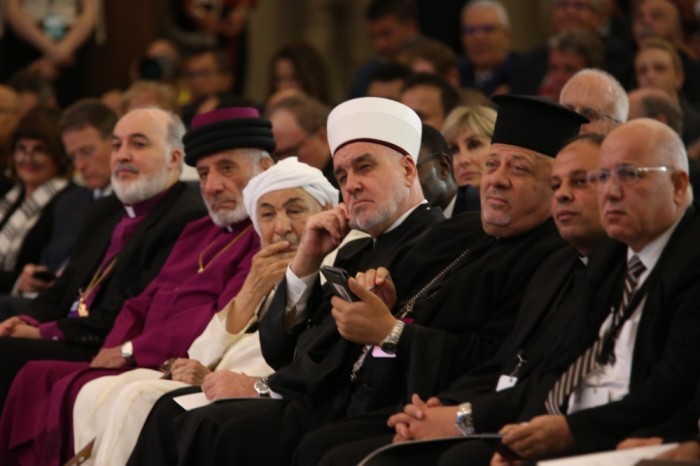
WASHINGTON — The U.S. State Department launched on Tuesday its second Ministerial to Advance Religious Freedom, a three-day summit being touted as the largest religious freedom event ever held.
Featuring remarks from survivors of some of the most recent religious-based massacres, around 1,000 global civil society and political leaders are expected to gather in the Harry S. Truman Building for a week filled with testimonies, relationship building and dialogue about strengthening religious freedom worldwide.
“Much effort has been put into making this a very special week,” U.S. Ambassador-at-large for International Religious Freedom Sam Brownback said during his introductory remarks.
“This is the largest human rights event ever hosted at the State Department and the largest religious freedom event ever done in the world. I hope you can sense and feel the importance of this moment in time. A global human rights movement centered on religious freedom is being launched from this meeting.”
At a time in which 80 percent of the world lives in a place where religious freedom is restricted, the Trump administration has made it a priority to advocate for religious freedom abroad.
Although Christians are the most persecuted religious group in the world today, religious-based attacks are impacting people of all faiths.
Survivors of the Pittsburgh, Pennsylvania, synagogue shooting last October and the New Zealand mosque shootings in March addressed the hundreds gathered for the ministerial’s opening session.
Additionally, a leader from the National Christian Evangelical Alliance of Sri Lanka shared the trauma that the Sri Lankan Christian community has dealt with in the aftermath of the 2019 Easter bombings that killed 250 people and injured 500 others at three churches and three hotels.
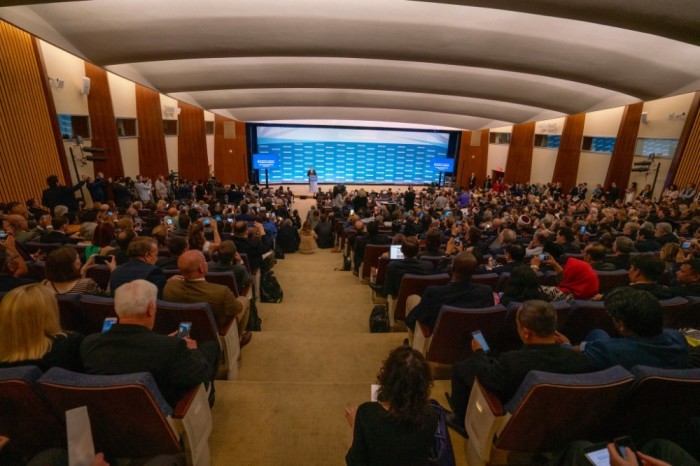
Dr. Farid Ahmad, a survivor of the shootings at two mosques in Christchurch, New Zealand, made headlines in the days following the attacks when he said that he forgives the attacker who took the lives of 51 people.
Ahmad explained at the ministerial it was his faith and teachings from the Quran that influenced his decision to forgive the attacker even though the man took the life of his wife while she was trying to rescue other worshipers.
“I had to respond and my response was that I offered my love and forgiveness for the killer,” Ahmad said of suspected perpetrator Brenton Tarrant, followed by an ovation from the crowd.
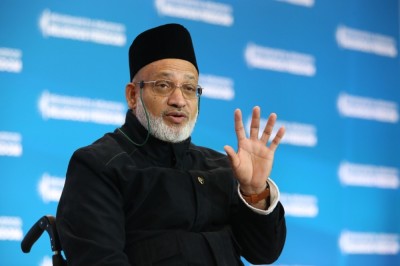
“'Why did I do this?’ I receive this question frequently. The first reason is that I love him because he is my human brother. Quran has taught me that each and every human being is my brother or sister.”
Tarrant reportedly issued a manifesto which claimed that he wanted “revenge for the enslavement of millions of Europeans taken from their lands by the Islamic slavers.”
Ahmad said that each person is like a beautiful flower that together comprises the “garden” that is God’s kingdom, no matter what their differences may be.
“You may have one faith and I may have a different faith but you are a beautiful flower. I am a beautiful flower and she is a beautiful flower. And together as humanity, we make one beautiful garden,” Ahmad said.
The second reason for forgiving the shooter, he said, is because the Quran tells him that God will love him if he forgives people of their trespasses.
“Those who control their anger and forgive their fellow man, they are the good-doers and Allah loves those who are good-doers,” he said.
Ahmad said that all people are descendants of Adam and Eve and there is no reason to have hatred toward people who are different.
“The hate destroys us. The one who has hate has a heart like a volcano. It is filled with hatred, raging fury. It is burning with it and also it is trying to burn the outside,” he said.
“The hate has left so many children motherless or fatherless. The hate has cost my wife.
“I had to go home alone and I had to tell my daughter that her mother would never come [home]. But we have to respond. We have to respond as a community.”
Rabbi Jeffrey Myers of the Tree of Life Synagogue in Pittsburgh, where 11 people were killed during a shooting last October, told the ministerial that last year’s attack made some children and congregants too afraid to attend worship services.
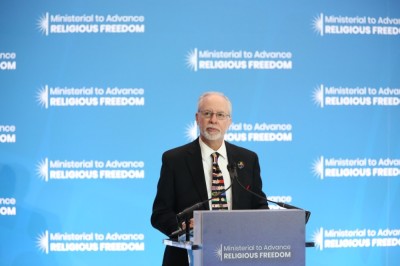
“The perpetrator of the massacre of the Tree of Life not only stole 11 beautiful lives that he had no God-given right to do, but he [also] stole the faith of countless Jews,” Myers stated. “Brick and mortar can be repaired but how do you repair, or in many cases restore, one’s faith in God, especially when faith is not instantaneous but evolves over the life of an individual?”
Myers, who was awarded in April the Simon Wiesenthal Center's Medal of Valor for his heroism, courage and bravery during the attack, assured that the shooting has encouraged other Jews in his community to re-engage their faith.
Myers challenged those in attendance to drop the word “hate” from their vocabulary and derided the television news media for focusing so much on “murder and mayhem” and for providing notoriety to perpetrators who carry out massacres such as the one in Pittsburgh.
“Imagine this, if the late-evening news offers 20 minutes of the wonderfully amazing acts that good people perform and hide the depressing news somewhere within the broadcast, I think that the mood of every nation will improve significantly,” Myers said. “So the challenge is what TV news station is brave enough to try that?”
Myers also stressed that people need to “tone down” emotional language.
“I took a pledge two weeks after the massacre in my synagogue to not use the word hate, which I have only used once,” he said. “It is a four-letter word in the English language and this is the case with all four-letter words that are obscenities, you don’t use it publicly or even privately.”
“No matter what it may be, if you don’t like something, we need to tone down the severity of our language,” he argued. “When we say the word [hate], we get emotional. Emotional language leads to emotional responses and violence, such as the murder of 11 Jews in my synagogue, the murder of nine in Charleston in 2015, the murder of [six] Sikhs in 2012 in Oak Creek. We need to tone down our language and let’s start with us as the example.”
Yamini Ravindran, legal and advocacy coordinator for the National Christian Evangelical Alliance of Sri Lanka, shared horrors of the trauma suffered by victims of the Sri Lanka Easter bombings this past April.
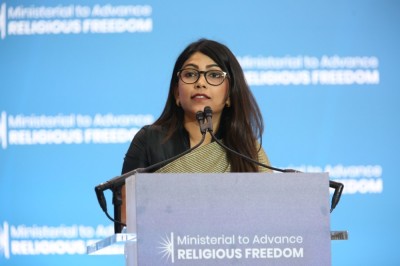
“Easter Sunday is supposed to be a day of celebration of the resurrection of Jesus Christ,” Ravindran said. “This Easter Sunday, Christians in Sri Lanka went to church dressed in their finest clothing. But little did we know that this Easter was going to be different, that it was going to change the lives of many.”
Considering Sri Lanka’s 30-year civil war ended in 2009, Ravindran said that children today in Sri Lanka are the first generation that has “not experienced war, division or brutality.” But the Easter bombings, she said, have brought back “painful memories of the past, the loss of lives, devastation of families, curfews and widespread fear among the people.”
She stated that the Christian community in Sri Lanka has been left with a fear “like never before” as Christian churches and schools were closed for weeks following the bombings.
“Today, we need to go to church with armed guards and security checking,” Ravindran said. “Children go to school with security checking. There is an increase in army and military officials checking for explosives.”
However, the biggest challenge for the Sri Lankan Christian community has been dealing with the trauma of victims whose lives have been changed permanently.
“Some of them will never be able to walk, have eyesight or do anything on their own,” she said. “Some have been paralyzed permanently.”
Ravindran shared the story of a 6-year-old girl who suffered serious internal and external injuries that left her blind. The girl also lost both of her parents.
“She doesn’t know that she may never be able to see again,” Ravindran said. “She keeps questioning: ‘Why is it so dark?’”
One 13-year-old boy was burned to death in the bombing, leaving a grieving mother behind and a 22-year-old woman died last week because of injuries suffered in the bombing.
“The victims are broken and suffering,” she said. “They are in great pain. However, they are on the path to recovery. Courageous people do not fear forgiving for the sake of peace. That is what we see in Sri Lanka and is what we see in the Christian community in Sri Lanka."
Follow Samuel Smith on Twitter: @IamSamSmith
or Facebook: SamuelSmithCP


















